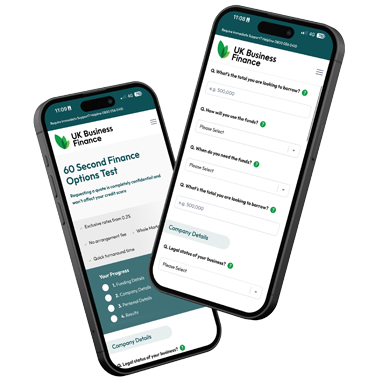Commercial Debt Disputes: What can you do if a customer disputes a debt?
It can be stressful as a business owner when a customer disputes a debt. Fortunately, there are ways you can minimise the likelihood of these kinds of disputes arising and if they do, there are steps you can take and there are several options available when it comes to recovering the money you’re owed.
Here, the debt recovery solicitors at Harper James discuss how a commercial debt dispute might arise and the steps you can take to resolve your commercial debt dispute.
How do you prevent a commercial debt dispute?
There are a few measures you can put in place to try and prevent a commercial debt dispute. These include:
- Having clear and transparent agreements in place: Ensuring that there’s a clear contract and/or terms of service in place agreed by you and your customer is the most important starting point before any work is undertaken, service provided or product sold, depending on the nature of your business. This means that everything is set out in black and white if a dispute arises which, in theory, should make resolving the conflict more straightforward.
- Effective invoicing and documentation: Make sure that your invoicing systems are clear and efficient. It’s a good idea to have a designated individual or department that deals solely with this task and it’s vital that any billing documentation such as invoices plainly set out your payment terms including the deadline for payment, whether instalments are accepted, details of whether any interest will be added to late payments and whether, for example, the account might be suspended if payment isn’t made on time.
- Communication strategies to avoid disputes: It can be difficult to know how best to handle a customer disputing a debt. Decide on your company’s strategy for if this happens and remember that it’s often possible to clear up what might be a simple misunderstanding via a friendly phone call or email once a payment deadline has passed. This could be followed up via a more formal email or letter after a certain amount of time has gone by.
Why do disputes over debt arise?
Disputes over debt can arise for a whole number of reasons. One of the most common is if the customer has an issue connected with the quality of the goods or services provided to them and sometimes, this can prove to be quite complex and require the outside assistance of a lawyer and/or an expert in the field that the goods or services falls under. There might also be a problem when it comes to the customer’s finances which means they’re now currently unable to pay the debt, or they might simply dispute the amount you’re claiming.
Initial steps when a debt dispute arises
There are certain things you should do as soon as a debt dispute is brewing on the horizon. These are:
- Reviewing the terms of the agreement: It’s wise to go back and check exactly what was agreed between you and your customer to make sure there hasn’t been a misunderstanding somewhere along the way. This will involve looking at the contract terms, including the payment terms agreed to make certain that they’re clear and can be highlighted to your customer when you raise the unpaid debt with them.
- Gathering and preserving evidence to support your position: This is where having clear and transparent agreements and effective invoicing and documentation in place comes into its own. Make sure that you have everything relating to the product or service you’ve provided in one place in an electronic and/or physical folder (e.g. contracts, emails, call transcripts, product samples, a note of key dates and times) and procedures are in place to avoid any accidental deletion of this material: this will all prove essential if you have to go further in pursuing the debt and which we’ll discuss in more detail below.
- Understand the debtor’s financial position: Investigating whether or not your customer is financially solvent is important before you decide how you want to go about recovering the debt and whether overall it’s worth doing so from a commercial perspective if the checks you make suggest there’s an issue. A good starting point with this is to search the Companies House register, which you can access on the UK government’s website here, or seek information from credit reference agencies or search the internet for any general information about the debtor.
- Seek legal advice: Speaking to a specialist business disputes lawyer can be worthwhile because they can help you recover the debt in the most cost-effective and efficient way.
What are the options for commercial debt recovery where debt is disputed?
In cases where there’s a disputed commercial debt, the options will very much depend on the nature of the conflict and the industry you’re operating in. Mediation can be an effective tool to resolve disputes of many kinds, including disputed debts, as can negotiation and other alternative dispute resolution methods as optional or mandatory avenues to explore before potentially going to court. If none of these options are successful (which in nearly all cases will involve a degree of compromise from both parties), issuing court proceedings so that a judge decides whether the dispute has any merit will be the next course of action. If your claim is successful, a judgment will be granted in your favour for the money owed. If the debtor still doesn’t pay, you’ll need to look at enforcement methods which can include making them insolvent or putting a charge on land or property owned by them.
How long do you have to chase a commercial debt?
The time which you have to chase a commercial debt is referred to as the ‘limitation period.’ For most debt claims governed by English law, this is six years from the date the debt became outstanding and the clock stops once a claim is issued in court. It’s also worth knowing that the clock will also restart for a renewed six-year timeframe if the debtor acknowledges the debt in writing or if they make a part payment against the debt.
Summary
You should put the right foundations in place to prevent debt disputes from happening and, as indicated above, there are some key factors to think about in solidifying these foundations. Seeking legal advice can be very worthwhile for most types of disputed debts because there can be many factors involved and matters can escalate quickly and become costly to sort out if not managed properly at an early stage.









